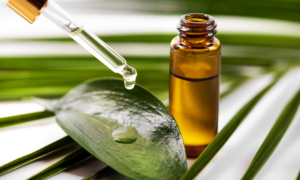Essential Oils
According to the study authors, ingredients in the following essential oils have shown some antiviral activity:
- bergamot oil
- eucalyptus oil
- red thyme
- cinnamon leaf
Tea tree oil may also have antiviral properties if a person incorporates it into air filtering systems, some scientists suggest.
Also, lemon balm may contain ingredients that could help prevent one type of bird flu virus from reproducing.
The results of another laboratory study suggest that a commercial blend of essential oils might help reduce the activity of one type of flu virus.
This product, sold as doTERRA On Guard, contains the essential oils of wild orange peel, clove bud, cinnamon leaf, cinnamon bark, eucalyptus leaves, and rosemary.
However, these findings do not confirm that any essential oil can cure or treat flu or any other type of virus.
How to use
The Food and Drug Administration (FDA) do not regulate essential oils or their use. For this reason, people should always buy them from reputable sources and use them with caution.
There are two basic methods for using essential oils: application to the skin and inhalation.
When applying an essential oil to the skin, always mix it with a carrier oil beforehand. Some examples of carrier oils include jojoba oil, olive oil, and nut oil. After diluting an essential oil, a person can apply it to the skin or add it to lotions and bath products.
For inhalation therapy, float the essential oils in hot water and inhale the vapors, or use a room diffuser. Inhaling eucalyptus may help ease congestion.
It is never safe to consume essential oils, and children should not use them in any way.
It is best to ask a doctor before using essential oils for any medical purpose.
I made a guide on 3 healthful exercises to help you on your journey for fertility health and awareness.

